Monday September 26, 2022
Julian König,
Institute of Molecular Biology (IMB), Mainz, Germany
«m6A methylation drives X-to-autosome dosage compensation in mammals»
Hosts: PhD students & Postdocs
Category Archives: *Featured*
Louis-Jeantet Symposium 2022 Oct 11, 2022 in Geneva
This years exceptional Louis Jeantet symposium will bring together the 10 Laureates of the COVID years during which the Jeantet Prize ceremonies could not take place. The scientists are exceptional, the topics extremely diverse from transcription, to RNA vaccins, to neuroscience, from protein structure to regenerative therapies, never forgetting cancer 😉.
It will take place at the CMU in Geneva on October 11th 2022, all day. Registration is needed if you want to attend in person:
https://www.jeantet.ch/web/e/symposium2022/
We are hopeful that as every year, the symposium will provide half a day of continuous education for animal experimentation.
Please forward this information to your friends and colleagues, also to students. Remember some 20 to 25 % of the people obtaining the Jeantet prize end up getting the Nobel 😉. It is always fun to have heard them before.
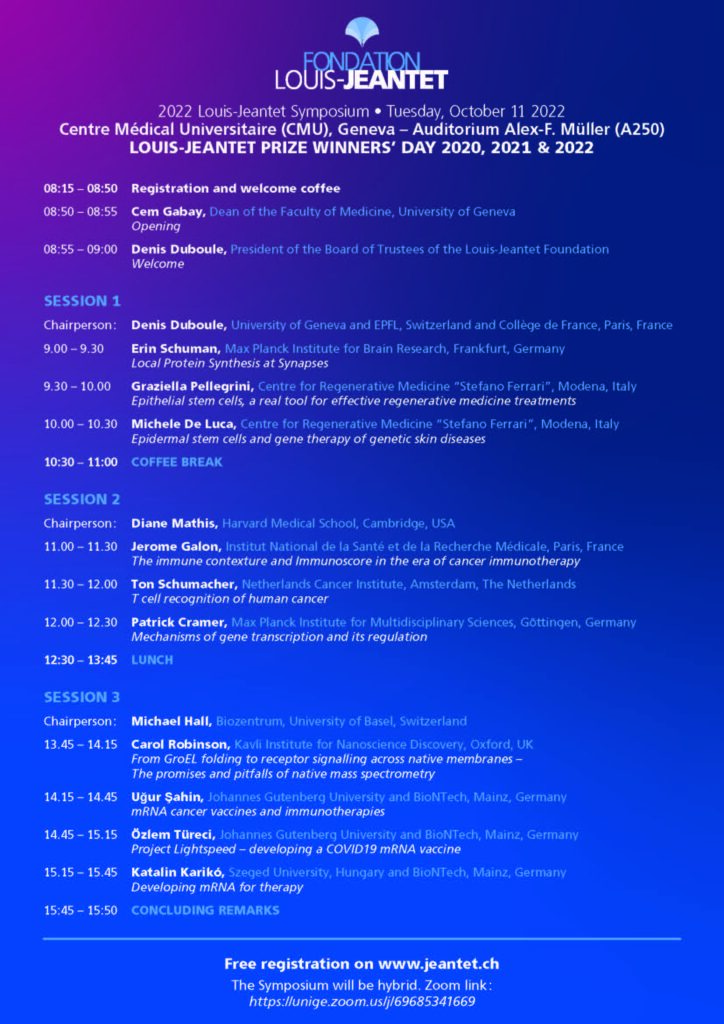
15 Fully funded PhD studentships in Quantitative Biology
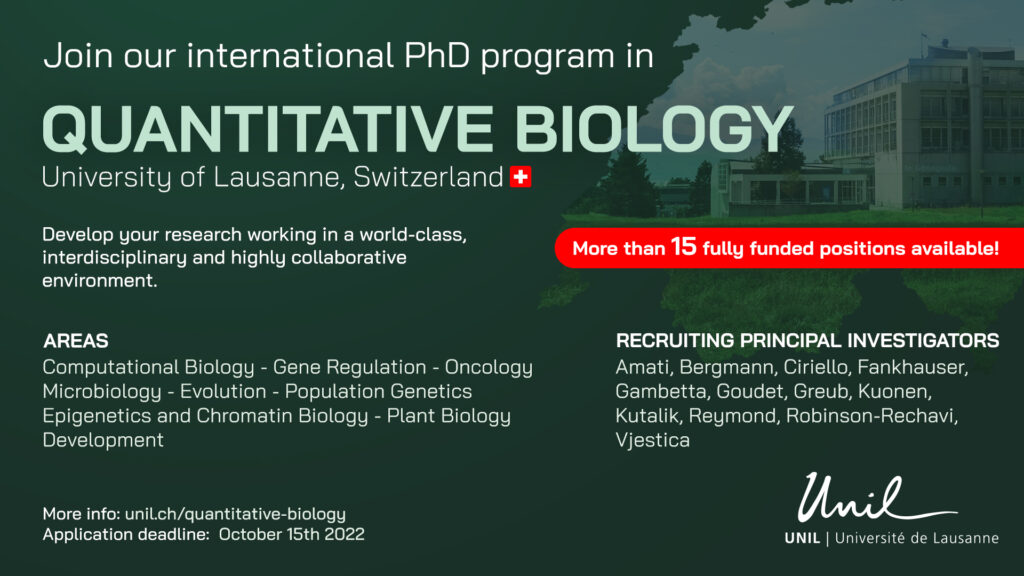
15 fully funded PhD fellowships in Quantitative Biology
Introduction
The advent of large-throughput data is transforming life sciences into an increasingly quantitative discipline. The University of Lausanne (Switzerland) is at the forefront of this revolution, with quantitative research ramping up throughout the Faculty of Biology and Medicine, a dedicated department of Computational Biology, and interdisciplinary units such as the Center for Integrative Genomics. UNIL also hosts the headquarters of the Swiss Institute of Bioinformatics, to which many quantitative research groups are affiliated, and closely collaborates with EPFL on the same campus. Ideally situated along the lake of Geneva, near Lausanne’s city center, UNIL brings together over 120 nationalities.
UNIL’s Faculty of Biology and Medicine has recently launched a doctoral program entitled “Quantitative Biology”. A wide range of research groups are recruiting PhD students, covering areas as diverse as Genetics, Cell biology, Metabolism, Computational biology, Oncology, Evolution, Microbiology, Imaging, Molecular biology, Neuroscience, Gene regulation, Radiobiology, Plant science, Ancient DNA, Population Genetics, Single-cell Genomics, Epi-lipidomics, Stem Cell Biology, Tissue Engineering and Biomaterials.
In 2022, hiring principal investigators include Francesca Amati, Sven Bergmann, Giovanni Ciriello, Christian Fankhauser, Maria C. Gambetta, Jérôme Goudet, Gilbert Greub , François Kuonen , Zoltán Kutalik, Alexandre Reymond.
Job information
Expected start date: 01.03.2023 or to be agreed
Successful candidates will be offered one of two kinds of PhD student work contract, depending on the funding available to the hiring supervisor by the start of the contract:
(1) Doctoral assistant on UNIL funds, at an activity rate of 85%. The initial contract is of one year but will be renewed up to 5 years.
(2) Doctoral assistant on external funds, at an activity rate of 100%. The initial contract is of one year but will be renewed up to 4 years.
Please also note that in some cases, again depending on the hiring supervisor situation, contracts will be issued from the CHUV (University Hospital) or a different UNIL faculty.
Workplace: University of Lausanne (Dorigny, Bugnon, or Epalinges—depending on the supervisor)
Your qualifications
We are accepting applications from talented and enthusiastic candidates who are interested in a dynamic, well-supported lab at a top research institution. Candidates need to finish a Master’s degree in a relevant area before the start date of their doctoral studies.
We are looking for three main types of PhD students:
- Students with a life science degree, interested in working in an experimental lab, but with a high degree of motivation to learn the fundamentals of computational biology, and to develop quantitative skills to analyze data more effectively
- Students with a life science degree interested in working in a dry computational lab, keen to deepen their quantitative skills and broaden their horizon in terms of experimental and computational techniques
- Students with a non-biological background (e.g. computer science, maths, physics), who are highly motivated to transition to Life Sciences
A high level of written and spoken English proficiency is required since most scientific activities are conducted in English.
What the position offers you
You will develop your research project while working in a world-class, interdisciplinary and highly collaborative environment.
The PhD program in Quantitative Biology provides opportunities for professional training and acquisition of highly transferable skills. This is complemented by a wide range of activities (retreats, symposia, student life).
The position is fully funded. Salary and benefits are internationally highly competitive. Additional funding for consumables, computing, and to attend international conferences is available.
Informal inquiries
Prof. Giovanni Ciriello, Co-director of the UNIL Doctoral Program in Quantitative Biology program
giovanni.ciriello@unil.ch
Your application
Deadline: 15.10.2022
For your application to be considered, you need to fill in two forms. Please read these instructions carefully.
The first form, linked here , requires the following informations:
- Personal details
- A cover letter. This can be very brief, since you will provide your motivations in the second form below.
- A single PDF document containing:
- Your curriculum vitae (with extracurricular activities, internships, publications, conferences, awards, software contributions, etc.)
- Available transcripts (Bachelor’s and, if available, Master’s)
- Bachelor or Master’s thesis summary, preferably, or summary of any research project you’ve been involved in. If the work is part of a team, please clarify your contribution.
- The names and contact details of 2-3 referees
The second form, linked here , requires you to answer the following questions
- What your most meaningful research experience to date and why? [up to 4000 characters, i.e. approximately 850 words]
- What accomplishment—academic or not—to date are you proudest and why? [up to 1500 characters, i.e. approximately 320 words]
- Why would you like to pursue a PhD, and why specifically at the UNIL Quantitative Biology Ph.D. program? [up to 1500 characters, i.e. approximately 320 words]
- Which recruiting labs are you the most interested in and why [up to 1500 characters, i.e. approximately 320 words]
If you can’t access the second form (e.g. connecting from China), please follow the instructions on this page.
Lab visits and interviews will take place on 5-6 December 2022 in Lausanne.
BIG SEMINARS 2022-2023
BIG seminars 2022-2023
Every first Monday of the month 16h15,
Auditorium Biophore Building
UniL-Sorge at Dorigny
Free entrance
BIG is an interdepartmental seminar series, and is organized by Olivier Delaneau, Julia Santiago, Yolanda Schaerli, Tanja Schwander and Nadine Vastenhouw
Philip A. Wigge, Leibniz Institute for Horticultural Science (IGZ), DE
7 November 2022
Eleftheria Zeggini, Technische Universität München, DE5 December 2022 Postponed in 2023, information about the date will follow
“The genomic aetiology of osteoarthritis“
Erik Svensson, Lund University, Sweden
6 February 2023
“Exploring the predictability of phenotypic evolution in an old insect group“
Eva Top, University of Idaho, Moscow, USA
6 March 2023
“Loss of a multi-drug resistance plasmid
in spite of strong antibiotic selection”
Nicole Soranzo, Genomics Research Centre ‑ Population & Medical Genomics, Milan, IT
3 April 2023
“The genetic and molecular basis of complex human diseases”
Buzz Baum, MRC-LMB Cambridge, UK
1 May 2023
“The evolution of cell division: From archaea to eukaryotes”
Irene Miguel-Aliaga, Imperial College London, UK
12 June 2023
“The sex and geometry of inter-organ communication”
GEN retreat 2022 in Les Diablerets
The Génopode Retreat in 2022 was held September 8 & 9 (Thursday & Friday) in Les Diablerets (Eurotel Victoria).
Please note: next GEN Retreat on 24-25 August 2023 in Leysin
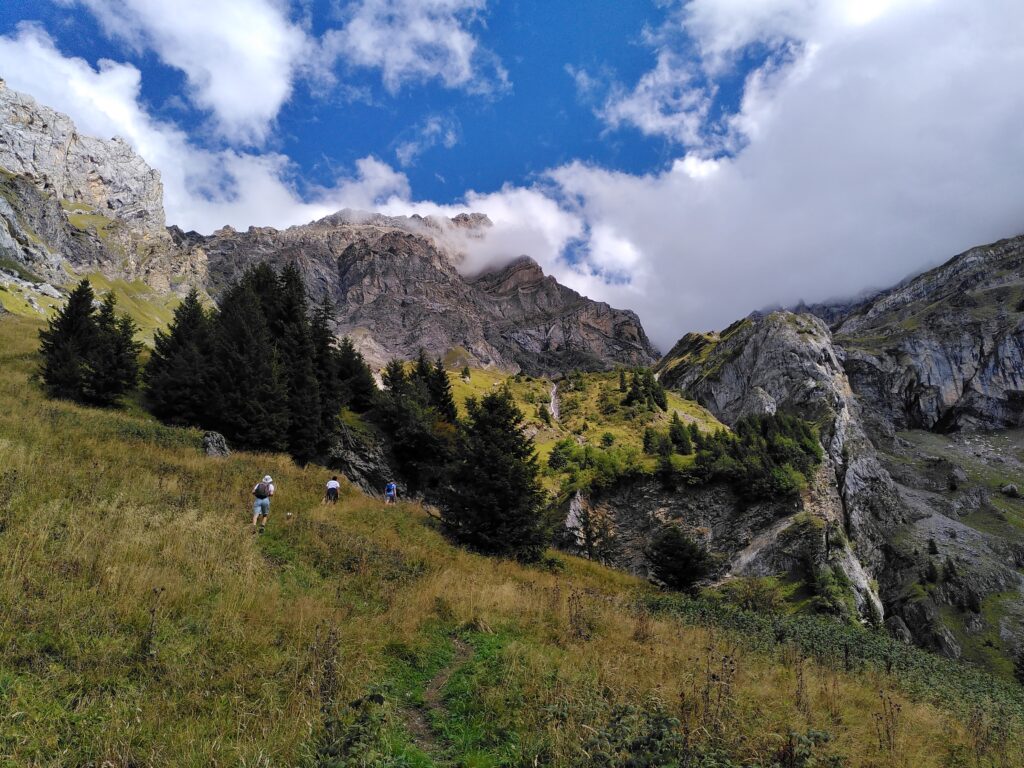
Best posters prizes:
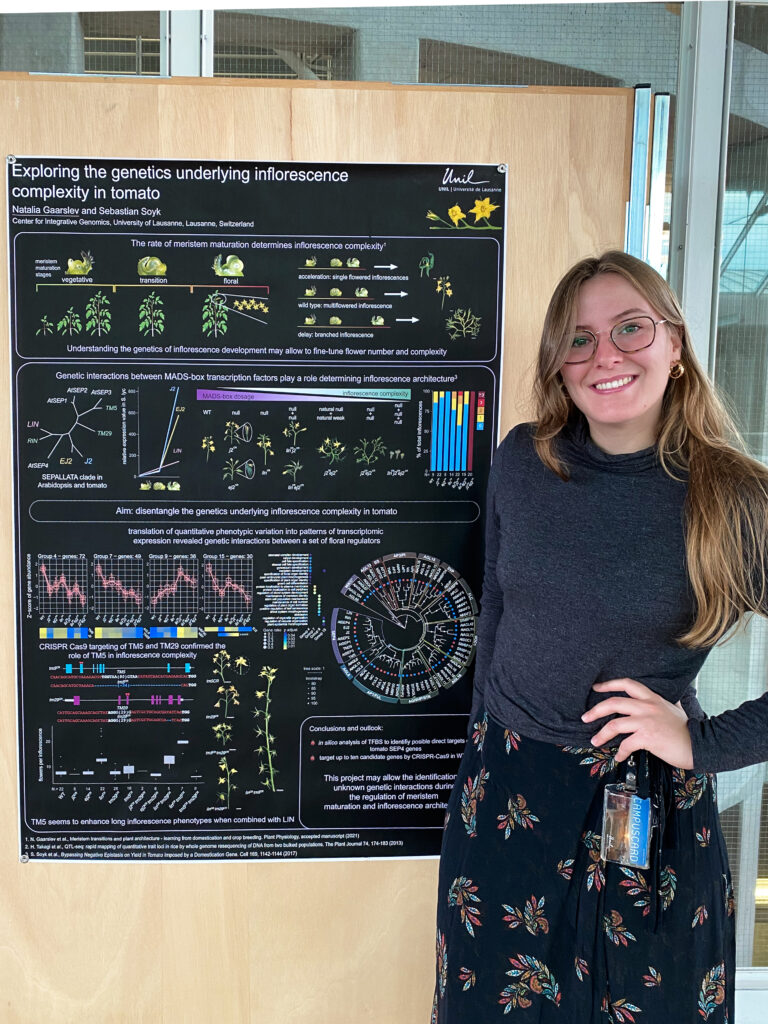
1st prize Natalia González Gaarslev for poster 29: “Exploring the genetics underlying inflorescence complexity in tomato”
2nd prize Nina Dukanovic for poster 23: “Acot11 links lipid metabolism and the NREM sleep homeostasis”
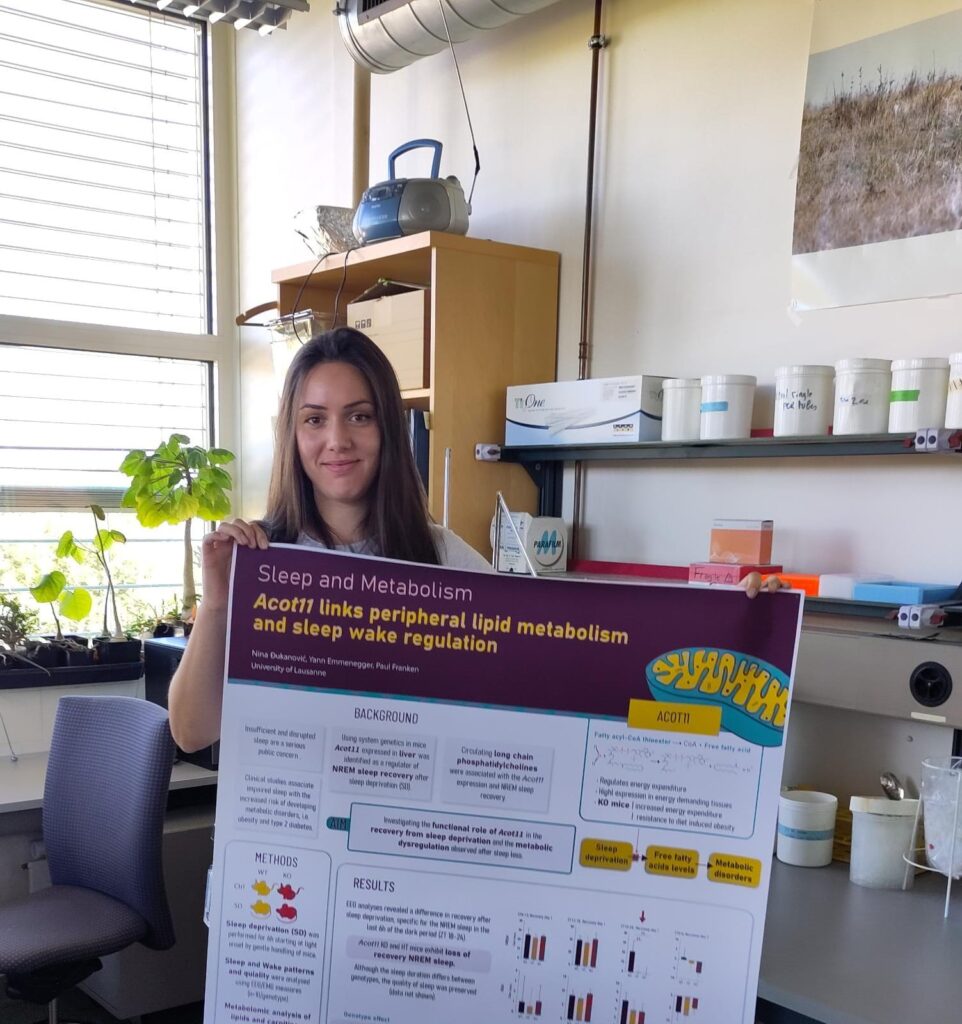
Congratulations to both of them!
Thu June 16-Fri June 17, 2022 – Lausanne Genomics Days 2022
The Lausanne Genomics Days is a 2-days international conference meant to share advances in genomics and their impact on biological research, applied to a wide range of topics (it does involve 5 UNIL departments CIG, DBC, DBMV, DEE, and DBMV).
For detailed program and more information, please visit the event webpage
Registration is FREE of charge. Still, it is mandatory for organization purpose, in particular ensuring that there will not be food wasted (coffee breaks, lunch and apero are offered).
HERE is the direct link for registration
Attendance is worth 0.5 ECTS
